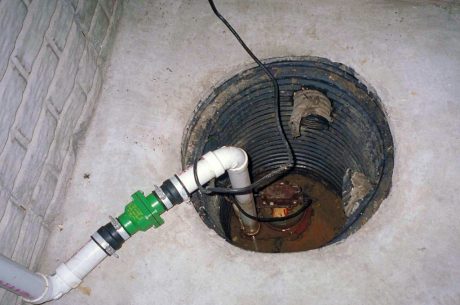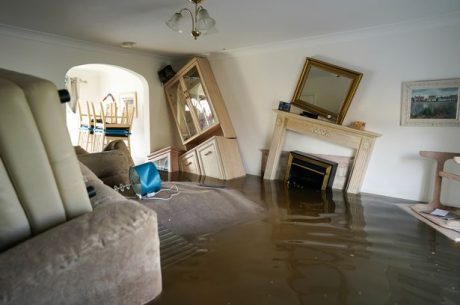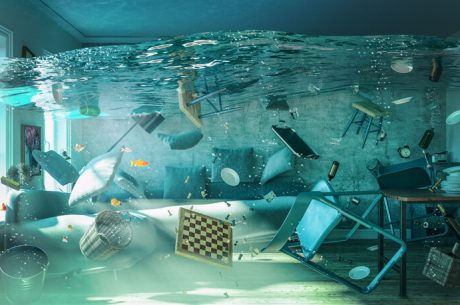Winter brings a picturesque landscape covered in snow, cozy evenings by the fire, and the joy of the holiday season. However, it also ushers in a significant threat to your home – frozen water pipes. When pipes freeze, they can burst, causing extensive damage to your property. In this guide, PuroClean Emergency Recovery Service New Jersey will explore why pipes burst in the winter, how to handle frozen pipes, and the best strategies for preventing them. If you find yourself in a plumbing predicament, remember that we’re here to help, and you can reach us at (877) 750-7876.
Why Water Pipes Burst in the Winter
The main culprit behind pipe damage and burst pipes in the winter is the drop in temperature. As water cools and freezes, it undergoes a unique transformation. Water, as it turns into ice, expands, occupying more space than it did in its liquid state. This expansion puts immense pressure on the interior of the pipes, making them vulnerable to rupture.
If you reside in an area where winter temperatures hover around freezing, your home is at risk of frozen pipe damage. Even if your home feels warm and snug indoors, the water lines connecting your house to the city’s water supply might be exposed to the cold. Poor insulation in your home can also contribute to freezing plumbing.
Do All Frozen Pipes Burst?
Thankfully, not all frozen pipes burst. However, even when pipes don’t burst, ice can accumulate inside them, obstructing the flow of unfrozen water. This is why it’s crucial to address and thaw frozen pipes as soon as you detect them. The initial sign of a frozen pipe is a weak or absent water flow from a plumbing fixture, such as your faucet or shower.
How to Thaw a Frozen Pipe
When dealing with a frozen pipe, you can attempt to raise the temperature and melt the ice by using various methods, such as:
- Portable heater
- Heating cable
- Electric heating pad
- Hairdryer
- Towels
Remember that safety comes first. Ensure you follow all safety guidelines and don’t leave heating devices unattended.
How to Protect Your Pipes from Freezing
Prevention is often the best defense. Being proactive and taking steps to safeguard your pipes from freezing is essential to avoid the chaos and damage that burst pipes can bring. Waiting until the dead of winter to address these issues is not an ideal approach. Here are some steps to help protect your pipes:
- Insulate Vulnerable Pipes: Identify pipes that are most susceptible to freezing, such as those running along exterior walls or in unheated spaces. Insulating them can help retain heat and prevent freezing.
- Seal Off Openings: Seal any openings, including window and door frames, with caulking material. This will prevent warm air from escaping your home and reduce exposure to the cold.
- Let Faucets Drip: When the weather forecast predicts single-digit temperatures, allow your faucets to drip slightly. This constant flow of water can prevent pipes from freezing by relieving pressure within the pipes.
- Monitor Your Roof: After a heavy snowfall, keep an eye on your roof. If snow accumulation exceeds six inches in depth, consider clearing it. Excessive snow on your roof can lead to ice dams, which can further damage your home.
- Roof Inspection: It’s wise to have your roof inspected by a professional before winter sets in. They can identify any repairs or replacements needed to ensure your roof survives the season without causing water damage.
What to Do If a Pipe Bursts
No one can predict what winter will bring, but you can count on the experts atPuroClean Emergency Recovery Service New Jersey to help restore, rebuild, and recover your property from winter weather damage. We’ve seen damage of all sizes resulting from pipe bursts during the winter months. If you suspect a pipe has burst in your home, take these steps:
- Turn Off the Main Water Valve: Immediately shut off the main water valve to stop further water flow.
- Contact Your Insurance Agent: Your first call should be to your insurance agent to report the damage.
- Consult a Plumber: It’s a good idea to reach out to a plumber to assess and repair the burst pipe.
- Call a Water Damage Restoration Company: As your second call, get in touch with a water damage restoration company like PuroClean Emergency Recovery Service New Jersey. Our 24-hour emergency response services ensure swift action to minimize damage.
Remember, when it comes to frozen pipes and water damage, swift action is essential. Don’t hesitate to reach out to us at (877) 750-7876 for expert assistance in dealing with frozen water pipe issues.



